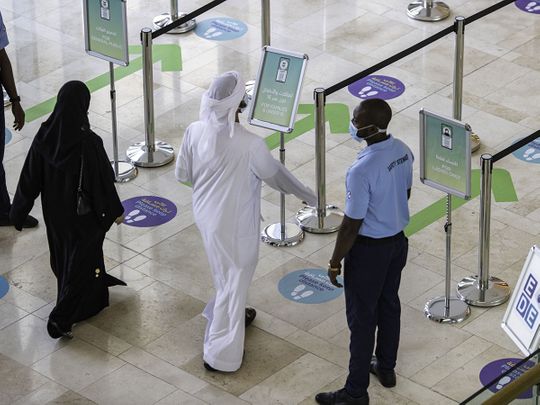
Dubai: Business activity in the UAE slowed down in January, and which also translated into job creation as well, with growth in new hiring at its lowest since December 2022, according to the latest PMI data from S&P Global.
Some slowing down was widely expected after the robust levels of new orders and all-around activity in the final 3 months of 2023. Plus, there is also the volatility playing out in the wider Middle East, not least of which is the Red Sea crisis.
Even then, “The disruption to supply lines resulting from the Red Sea attacks appeared to have a modest impact on the UAE non-oil sector in January, with a few firms noting delivery delays, aggregate backlogs rising, and reports of higher shipping costs,” said David Owen, Senior Economist at S&P Global Market Intelligence.
Pressure on inflation
“The impact on inflationary pressures so far has been notable but not severe, as input costs rose at a faster rate than in December but remained slower than in the preceding three months," said Owen.
Since the Houthis in Yemen started on their attacks on ships passing through the Red Sea and Bab Al Mandab, and then met by US retaliatory attacks, the bigger shipping companies had taken to alternate routes. That has meant jacking up container rates by more than $1,000 a TEU on the Europe to Gulf sector, and accompanied by delivery delays as ships had to take the longer route via the Cape of Good Hope.
UAE government officials and business owners have been talking about the economy's resilience, and some of that is clearly apparent in the January PMI (Purchasing Managers Index) data. "The rate of growth eased to the least marked since August 2023," the report notes. "Nevertheless, it was still much stronger than the long-run average (since 2009).
"Increased sales and marketing, new and current projects, greater investment and government initiatives were all reported as drivers of growth by survey members."
What does the PMI show?
For January, the UAE PMI was at 56.6, well above the par score of 50 (which would have meant a low- or no-growth scenario for businesses and the wider economy. But it is still a drop from December 2023's 57.4 score. (The PMI is based on business spending, expansion plans, new hiring, and of course, on sentiments among CEOs and company promoters.)
"Containing the fallout from geopolitics will be a top priority for businesses," said a banker. "That shipping container rate hikes could play out for another two/three months. But the impression is that UAE businesses have adjusted to it pretty fast."
A high degree of confidence
There is no shortage of confidence among UAE business owners regarding the year-ahead outlook. The S&P Global report notes it's 'roughly on par with the 2023 average'. "Firms generally expect strong demand and sales pipelines to drive a sustained expansion in output, with hopes of new projects and greater investment also helping to boost positivity," it adds.
Will this translate into improved job creation? The jury is still out on this, at least based on what S&P Global says. "More striking was a waning of employment growth to the weakest since December 2022, as strong demand and business optimism failed to translate into greater hiring," it states.
More to follow...










